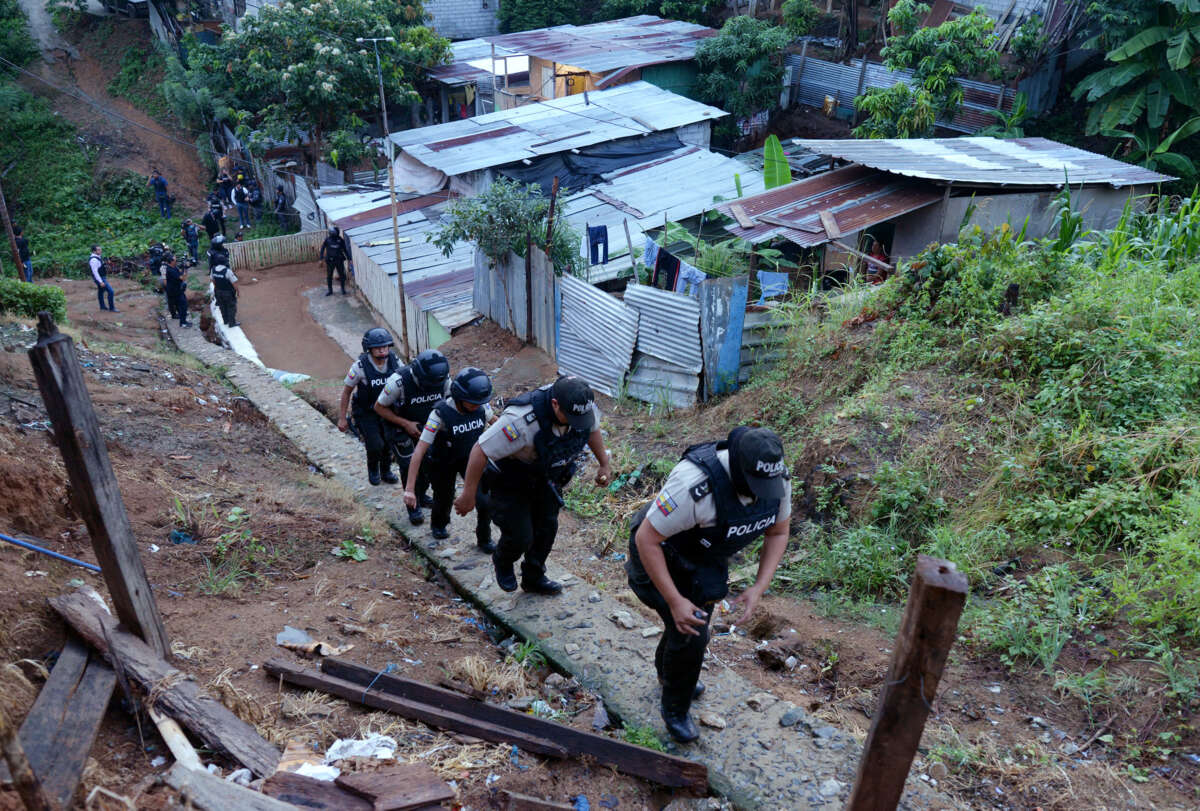Truthout is a vital news source and a living history of political struggle. If you think our work is valuable, support us with a donation of any size.
The global “war on drugs” led by the United States has been a costly and destructive failure that must be terminated and replaced by an approach focused on harm-reduction, an independent United Nations expert said Monday.
Tlaleng Mofokeng, the U.N.’s special rapporteur on the right to health, wrote in a report delivered to the Human Rights Council that since the 1970s, the global drug war has “heavily criminalized and stigmatized the production, distribution, and consumption of psychoactive drugs, with devastating effects across the globe and particularly in the Global South.”
While the “existing international legal framework on drug control has propelled the criminalization of drug use, naming addiction to drugs as an ‘evil’ that states must combat,” Mofokeng continued, “the risk of harsh punishment has not served as a deterrent to drug use” and draconian “drug laws and policies have resulted in the violation of various human rights, including the right to health, with a disproportionate impact on people who have been made the most vulnerable.”
Mofokeng, a South African physician, noted that the drug war has “negatively affected the availability, accessibility, acceptability, and quality of certain drugs used as medicines.”
As an alternative to incarceration and other punitive drug policies, Mofokeng urged nations to “decriminalize the use, possession, purchase, and cultivation of drugs for personal use” and roll out “harm-reduction services such as needle exchange programs and opioid substitution treatment” for those struggling with addition.
Governments should also “decriminalize, repeal, rescind or amend laws and policies that have a negative impact on the right to health and that perpetuate different systems of oppression, such as racism and colonialism,” and “ensure that drug law enforcement does not lead to violations of the enjoyment of the right to health,” said Mofokeng.
Human rights advocates applauded the U.N. expert’s recommendations.
Erika Guevara-Rosas, Amnesty International’s senior director for research, advocacy, policy, and campaigns, said in a statement that “this is a bold and urgent call on governments worldwide to finally abandon the manifestly failed policies of the so-called ‘war on drugs.'”
“For over six decades, this ill-conceived approach to public health has not only failed to reduce the use and supply of drugs, it has also resulted in widespread human rights violations, violence, mass incarceration, suffering, and abuse across the globe, affecting disproportionately people from historically marginalized communities,” said Guevara-Rosas. “This report powerfully highlights that another way is possible. Focusing on harm reduction, treatment, and social support has proven the benefits of putting human rights at the center of drug policies.”
The United States has spent over a trillion dollars fighting the war on drugs, which the Nixon administration launched in the early 1970s. In recent years, the U.S. and European governments have used chunks of their international aid budgets to fight the drug war internationally, fueling militarization and deadly violence in Latin America and elsewhere.
Between 2012 and 2021, rich governments devoted nearly a billion dollars in their international aid budgets to fighting the drug war, according to an analysis released last year by Harm Reduction International. More than half of that aid money came from the U.S.
The Guardian reported in September that the U.S. has “hugely increased” the amount of international aid spent on narcotics control under President Joe Biden, who has faced criticism from rights groups for extending punitive drug war policies.
“Many lives have been sacrificed and it’s time to stop wasting resources,” Guevara-Rosas said Monday. “Governments must consign the ‘war on drugs’ to history and start implementing all the recommendations outlined in this report. This includes decriminalizing personal use, possession, cultivation, and acquisition of drugs and moving towards the effective regulation of drugs to ensure legal and safe access for those authorized.”
A terrifying moment. We appeal for your support.
In the last weeks, we have witnessed an authoritarian assault on communities in Minnesota and across the nation.
The need for truthful, grassroots reporting is urgent at this cataclysmic historical moment. Yet, Trump-aligned billionaires and other allies have taken over many legacy media outlets — the culmination of a decades-long campaign to place control of the narrative into the hands of the political right.
We refuse to let Trump’s blatant propaganda machine go unchecked. Untethered to corporate ownership or advertisers, Truthout remains fearless in our reporting and our determination to use journalism as a tool for justice.
But we need your help just to fund our basic expenses. Over 80 percent of Truthout’s funding comes from small individual donations from our community of readers, and over a third of our total budget is supported by recurring monthly donors.
Truthout has launched a fundraiser, and we have a goal to add 182 new monthly donors in the next 24 hours. Whether you can make a small monthly donation or a larger one-time gift, Truthout only works with your support.
